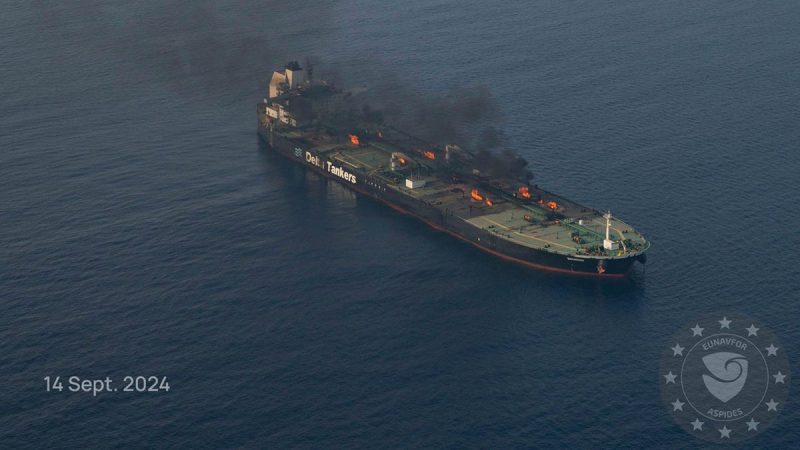Russia has been aiding the Houthis’ assault on Western shipping lanes in the Red Sea by providing them targeting data.
As the Houthis ramped up their strikes on the U.S. and other nations’ postures in the region after the Oct. 7 attack on Israel, Russians offered satellite data allowing them to expand their strikes, take out multimillion-dollar U.S. drones and hit ships sailing through the Red Sea and the Suez Canal, through which 12% of global trade passes, according to a Wall Street Journal report.
Each munition used to intercept a Houthi strike costs the U.S. upwards of between $1 million and $4 million.
The data passed through Iran’s Revolutionary Guard Corps (IRGC).
The satellite data would represent direct Russian involvement in attacks on the U.S.
In response to the report, Russia’s Foreign Ministry spokesperson Maria Zakharova told Fox News Digital: ‘I am focused on U.S./U.K. providing satellite data to [Kyiv] regime to commit terrorist attacks against civilians.’
While the U.S. has tried to avoid direct involvement in the war by withholding long-range capabilities of U.S. weapons for Ukraine, it has provided classified intelligence to Kyiv’s war efforts.
The news comes at the same time North Korea is sending at least 3,000 troops to fight alongside the Russians — as the conflicts in both the Middle East and Ukraine expand in global involvement.
The U.S. has long been involved in diplomatic efforts to prevent Russia from arming the Houthis, a group Washington redesignated as a terrorist organization in January.
The Houthis have vowed to continue their attacks until there is a cease-fire in Gaza and Lebanon.
In addition to destroying goods destined for the West, the regular Houthi attacks drive up insurance costs, as premiums for some shot up tenfold. They also force some ships to travel the long way, down around the Horn of Africa, which can add $1 million in fuel costs for a round trip.
Since Oct. 7, 2023, Houthis have targeted more than 100 merchant vessels with missiles and drones, seizing one, sinking two and killing four sailors. Oil tanker traffic has now nearly halved through Bab al-Mandab, the strait that separates the Red Sea from the Indian Ocean, from October 2023 to August of this year, according to Windward, a maritime-intelligence company.
The rebel group shot down one of the U.S.’ MQ-9 Reaper drones, valued at $30 million a piece, in October and two in September.
In recent months, Russian President Vladimir Putin has strengthened ties with Iran, despite a historic friendship with Israel and Prime Minister Benjamin Netanyahu.
Putin has criticized the U.S. and Israel over the conflicts in Gaza and Lebanon and said the region risks all-out war.
The U.S. has been urging Russia not to provide antiship or antiair missiles to the Houthis which could threaten U.S. military postures in the region.
Viktor Bout, the Russian arms dealer the U.S. traded for WNBA player Brittney Griner in a prisoner exchange, is attempting to broker a $10 million small arms deal with the Houthis, according to The Wall Street Journal. It’s not clear whether the deal is sanctioned by the Kremlin.
Tankers carrying Russian oil have been the subject of Houthi attacks, but they are operating through shell companies meant to hide their Russian origin and evade Western oil sanctions.
Who will Trump pick next for attorney general after Gaetz’s withdrawal?
Matt Gaetz, the former Florida representative and President-elect Donald Trump’s nominee f…















